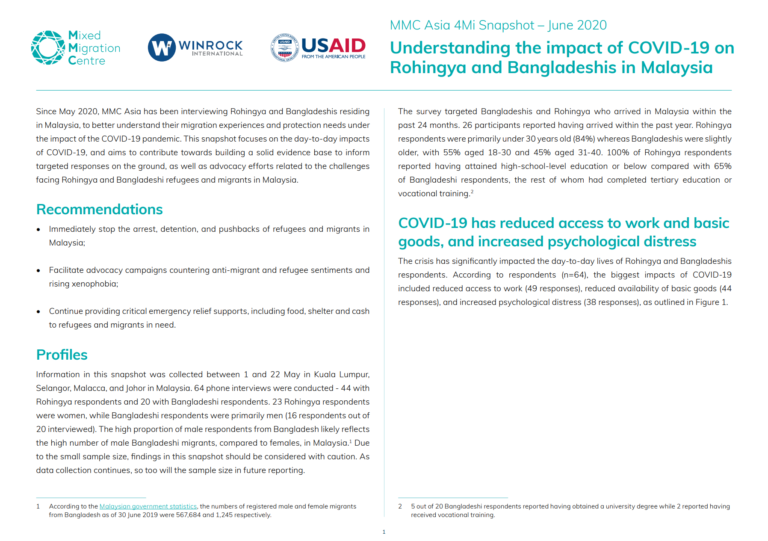Protecting Migrant Workers During the COVID-19 Pandemic
COVID-19 resourcesGuidanceThis policy brief provides information and identifies a number of key recommendations to assist governments and other stakeholders in designing COVID-19 policy responses that can help to ensure the protection of migrant workers, as well as to inform...Read More

